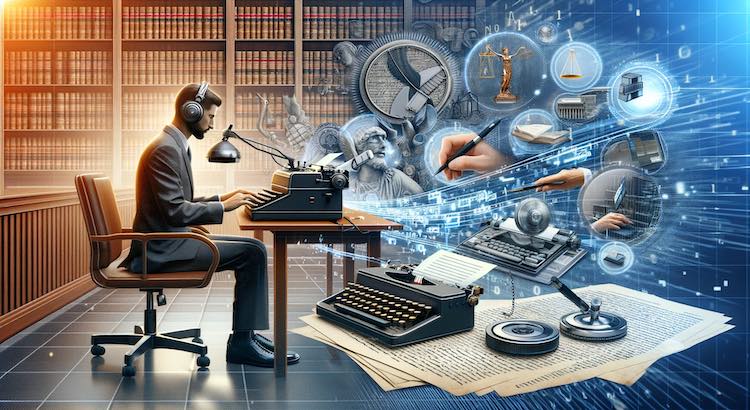The Essential Connection Between Court Reporting and Legal Transcription
Legal proceedings depend on accuracy and transparent records. Every spoken word must be captured and made accessible. Both court reporting and legal transcription are vital to supporting the legal system and upholding justice.
Understanding Court Reporting
Court reporters create written records of what is said during trials, hearings, and legal meetings. This work is a critical part of the judicial process.
What Do Court Reporters Do?
- Record every word during legal events using special equipment like stenotype machines
- Use voice writing technology to catch spoken words without background noise
- Create official transcripts used in legal reviews and appeals
The National Court Reporters Association highlights that even a small error in these transcripts can change the meaning of a legal argument (NCRA, 2022). This is why the work of court reporters is so crucial.
Why Are Court Reporters So Important?
- They provide the only official record of what happens in the courtroom
- Lawyers and judges rely on these transcripts to prepare cases
- They support both transparency and accountability in the justice system
Legal Transcription Services: Turning Speech into Official Records
While court reporters capture live speech, legal transcription services process audio or video recordings into written documents.
How Does Legal Transcription Work?
- Transcriptionists listen to court audio or video files
- They type out everything that is said, including legal terms
- Follow strict formatting and accuracy requirements
This process helps convert spoken legal content into accessible, official text.
Who Uses Legal Transcriptions?
- Attorneys to review witness testimony
- Judges to draft legal decisions
- Legal researchers for case preparation
- People with hearing loss, who need text versions of court action
Detailed transcripts support appeals and allow for in-depth legal analysis.
The Benefits of Partnering Court Reporting with Transcription
These two services work together to provide the best results for everyone involved in the legal process.
Improved Accuracy and Accessibility
- Real-time capture by court reporters means nothing is missed
- Written transcriptions give a clear, lasting record
- Transcripts help courts operate transparently and fairly
Accurate records are especially important for appeals. Courts often require written transcripts before they will review a case.
Accessibility for All Participants
- Closed caption services make legal content available to people who are deaf or hard of hearing
- Subtitling services translate court content for non-English speakers
The Role of Technology in Court Reporting and Transcription
Modern technology is changing legal documentation. Automated transcription technology now assists many legal teams.
Technological Advances
- Digital recording captures audio more clearly than older methods
- AI transcription services speed up transcript creation
- Human experts still review transcripts to ensure context, accuracy, and legal nuance remain
Although software helps speed up the process, experienced court reporters and legal transcriptionists check for mistakes and ensure quality (ABA, 2021).
How to Choose the Right Legal Transcription Service
Selecting a transcription provider is an important decision for any legal team.
Key Considerations
- Accuracy: Does the service have a strict quality check process, such as transcription proofreading?
- Security: Are your recordings and transcripts safe?
- Turnaround Time: Can the company deliver transcripts quickly?
- Cost: Are rates clear and reasonable? Learn more about transcription pricing.
- Available Extra Services: Does the provider offer text translation or audio translation if needed?
Conclusion: Trust GoTranscript for Legal Transcription and Reporting
Court reporting and legal transcription work together to deliver accurate, accessible, and official legal records. Their partnership is key to justice, transparency, and due process. As new technology emerges, human expertise remains essential for ensuring context and legal accuracy.
If you need reliable, accurate legal transcripts, GoTranscript offers transcription services, automated transcription, affordable transcription rates, closed captioning, and secure transcript ordering. These solutions make legal documentation more accurate and accessible for everyone.



















 Verified Order
Verified Order